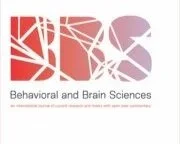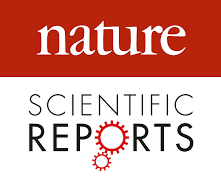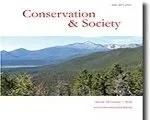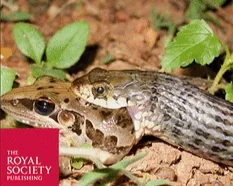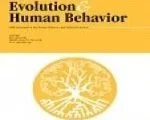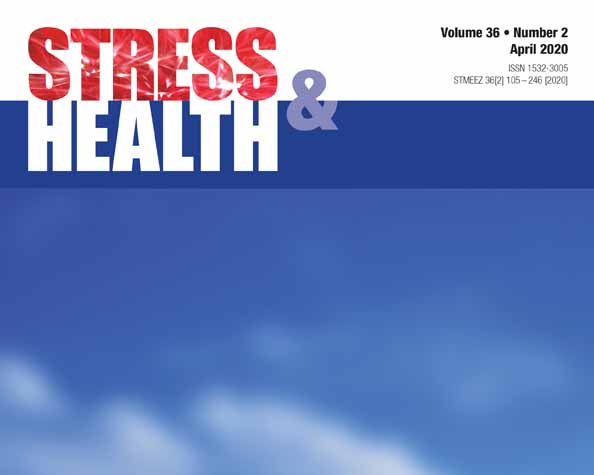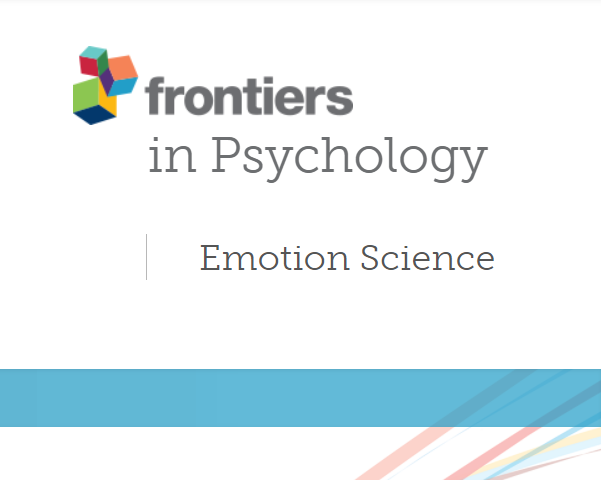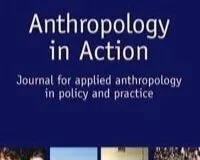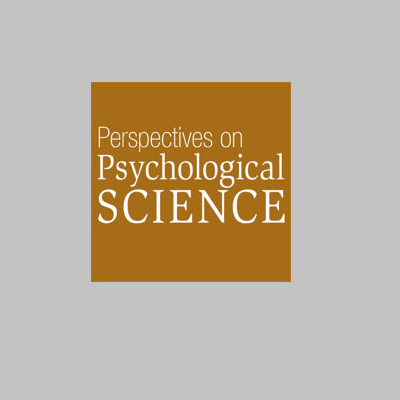Research Interests
Why die for a group?
The human propensity to sacrifice one’s life for genetic strangers has puzzled scientists since Darwin. With support from the ESRC and the John Fell Fund, we’re beginning to solve that puzzle.
KEY ARTICLES:
Brothers in arms: Libyan Revolutionaries bond like family
- Proceedings of the National Academy of Sciences
Dying for the group: Towards a general theory of extreme self-sacrifice
- Behavioral and Brain Sciences
The evolution of extreme cooperation via shared dysphoric experiences
- Scientific Reports
- The Routledge Handbook on Radicalisation and Countering Radicalisation
Funding Support
2022–2025: Templeton Religion Trust ($2.5 million). Project Director: Pascal Boyer. Co-Directors: Harvey Whitehouse and Claire White. Title: The Persistence of “Wild” Religious Traditions: How the Handling of Misfortune Influences the Dynamics of Folk Religions.
2016–2023: European Research Council (€2.5 million). Principal Investigator: Harvey Whitehouse. Title: RitualModes: Divergent modes of ritual, social cohesion, prosociality, and conflict.
2011 – 2016: Economic and Social Research Council (£3.2 million). Principal Investigator: Harvey Whitehouse. Title: Ritual, Community, and Conflict.
2014–2015: John Fell OUP Research Fund (£59,188). Principal Investigator: Harvey Whitehouse. Title: Identifying the Intra-Group Causes of Inter-Group Conflict: Toward an Interdisciplinary Framework and Research Centre.
How does social complexity evolve?
Using databases developed in collaboration with social scientists, evolutionary theorists, historians, and archaeologists, we’re testing a raft of hypotheses about the role of ritual in the evolution of increasingly large-scale and complex societies. Through this work, funded by large grants from the ESRC, the European Research Council, JTF, and the Tricoastal Foundation, we’re developing a new way of quantifying patterns in the human past that will provide a storehouse of information for future scientific research.
KEY ARTICLES:
Modes of religiosity at Çatalhöyük
- Religion in the Emergence of Civilization: Çatalhöyük as a Case Study
Testing the Big Gods hypothesis with global historical data: A review and “retake”
- Religion, Brain & Behavior
- PNAS (Proceedings of the National Academy of Sciences of the United States of America
The role of ritual in the evolution of social complexity
- Oxford Handbook of Cultural Evolution
FUNDING SUPPORT:
2022–2025: Templeton Religion Trust Grant (US $2.5 million). Project Director: Pascal Boyer. Co-Directors: Claire White and Harvey Whitehouse. Title: The Persistence of “Wild” Religious Traditions: How the Handling of Misfortune Influences the Dynamics of Folk Religions.
2016–2023: European Research Council (€2.5 million). Principal Investigator: Harvey Whitehouse. Title: Ritual Modes: Divergent modes of ritual, social cohesion, prosociality, and conflict.
2011–2017: Economic and Social Research Council (£3.2 million). Principal Investigator: Harvey Whitehouse. Title: Ritual, Community, and Conflict.
2015–2018: European Commission H2020 (€4 million). Principal Investigator: Rob Brennan. Co-Investigators: Jim Davies, Harvey Whitehouse, Sebastian Hellemann, Andreas Koller, Christian Dirschl, and Arkadiusz Marciniak. Title: ALIGNED: Quality-centric Software and Data Engineering.
2014–2017: John Templeton Foundation ($924,002). Principal Investigator: Peter Turchin. Co-Investigators: Thomas Currie, Harvey Whitehouse, Peter Peregrine, Kevin Feeney, and Douglas White. Title: Axial-Age Religions and the Z-Curve of Human Egalitarianism.
How do we acquire the rituals of the communities around us?
Rituals are learned socially through the mechanism of imitation. Although most research on imitation has examined the acquisition of technical and instrumental knowledge, imitation is equally necessary to acquire the social norms, rituals, and customs of cultural communities. Supported by a Large Grant from the ESRC and an Advanced Grant from the ERC , we have been investigating the role of the ‘ritual stance’ in social learning.
KEY ARTICLES:
In-group ostracism increases high-fidelity imitation in early childhood
- Psychological Science
Tradition and invention: The bifocal stance theory of cultural evolution
- Behavioral and Brain Sciences
FUNDING SUPPORT:
2011–2016: Economic and Social Research Council (£3.2 million). Principal Investigator: Harvey Whitehouse. Title: Ritual, Community, and Conflict.
2009–2011: McDonnell Foundation Research Grant ($24,500) and John Fell Fund Grant (£7,500). Co-Investigators: Harvey Whitehouse and Cristine Legare. Title: The Development of Teleological and Causal Reasoning About Ritualized Action.
What is morality and where does it come from?
Evolutionary theory suggests that human morality is the product of a range of domain-specific cognitive mechanisms designed by natural selection to solve problems of cooperation such as kin altruism, mutualism, reciprocity, and conflict resolution. Thanks to Templeton World Charity Foundation funding, The Oxford Morals Project is testing this theory of morality by means of large-scale cross-cultural surveys of moral values.
KEY ARTICLES:
- Psychological Bulletin
Is it good to cooperate? Testing the theory of morality-as-cooperation in 60 societies
- Current Anthropology
Cooperative conservation: Seven ways to save the world
- Conservation Science and Practice
Funding Support:
2017–2021: Templeton World Charity Foundation (£1.5 million). Principal Investigator: Harvey Whitehouse. The Cognitive and Cultural Foundations of Religion and Morality.
2012–2015: John Fell OUP Research Fund (£68,047). Principal Investigator: Harvey Whitehouse. Title: Mapping the Moral Domains: The Development of a New Scale for Cross-Cultural Research.
How do rituals bind groups together?
For centuries, scholars have realized that rituals produce social glue, promoting cooperation and trust within groups and pitting them against outsiders. Large grants from the ESRC, JTF, and TRT are helping us unravel the mechanisms by which rituals accomplish these effects.
KEY Articles:
The cultural morphospace of ritual form: Examining modes of religiosity cross-culturally
- Evolution and Human Behavior
The ties that bind us: Ritual, fusion, and identification
- Current Anthropology
Ritual, fusion, and conflict: The roots of agro-pastoral violence in rural Cameroon
- Group Processes & Intergroup Relations
How shared suffering bonded Britons witnessing the Queen’s funeral
- Nature, Scientific Reports
Funding Support
2022 – 2025: Templeton Religion Trust Grant (US $2.5 million). Project Director: Pascal Boyer. Co-Directors: Claire White and Harvey Whitehouse. Title: The Persistence of “Wild” Religious Traditions: How the Handling of Misfortune Influences the Dynamics of Folk Religions.
2016–2023: European Research Council (€2.5 million). Principal Investigator: Harvey Whitehouse. Title: RitualModes: Divergent modes of ritual, social cohesion, prosociality, and conflict.
2011 – 2017: Economic and Social Research Council (£3.2 million). Principal Investigator: Harvey Whitehouse. Title: Ritual, Community, and Conflict.
2012–2015: John Templeton Foundation (£1 million). Principal Investigators: Harvey Whitehouse, David Sloan Wilson, and Jon Lanman. Title: Religion’s Impact on Human Life: Integrating Proximate and Ultimate Perspectives.
How can we harness social cohesion to solve environmental problems?
Action on climate change requires cooperation and social glue. Religion is a important source of social glue worldwide and has played a major role in solving other collective action problems in world history – from building pyramids and cathedrals to expanding empires. Currently, around 7 billion people worldwide identify with religious communities, most of which provide scriptural support for stewardship of the planet. But these beliefs have has not been fully mobilised to support action on global heating or other environmental issues. Our research is trying to explore ways of harnessing religious cohesion to tackle the issues more effectively.
KEY ARTICLES:
How moments become movements: Shared outrage, group cohesion and the lion that went viral
- Frontiers in Ecology and Evolution
Cooperative conservation: Seven ways to save the world
- Conservation Science and Practice
Towards a more natural governance of Earth’s biodiversity and resources
- Conservation and Society
What kinds of speeches motivate climate action?
- Royal Society Open Science
Funding Support
2025–2026: Templeton Religion Trust Grant (US $259,997). Principal Investigators: Harvey Whitehouse & Dominic Johnson. Title: SCORE at the Coalface: Global Challenges and the Social Consequences of Religion.
The Oxford Martin School. Principal Investigators: Harvey Whitehouse, Dominic Johnson, David Macdonald. Title: Natural Governance.
2017–2021: Templeton World Charity Foundation (£1.5 million). Principal Investigator: Harvey Whitehouse. The Cognitive and Cultural Foundations of Religion and Morality.
2016–2023: European Research Council (€2.5 million). Principal Investigator: Harvey Whitehouse. Title: RitualModes: Divergent modes of ritual, social cohesion, prosociality, and conflict.
2011–2017: Economic and Social Research Council (£3.2 million). Principal Investigator: Harvey Whitehouse. Title: Ritual, Community, and Conflict.
Why are people so passionate about football?
Many football fans display intense loyalty to club and willingness to sacrifice resources to support their team, home and away come rain or shine. We have been investigating the processes by which loyalty to soccer clubs is produced. Although football fandom can lead to hooliganism and violence, our research suggests it can also be harnessed in more positive ways, to motivate charitable works or healthier lifestyles.
KEY ARTICLES:
Brazil’s football warriors: Social bonding and inter-group violence
- Evolution and Human Behaviour
United in defeat: Shared suffering and group bonding among football fans
- Sport and Leisure
Funding Support
2016–2023: European Research Council (€2.5 million). Principal Investigator: Harvey Whitehouse. Title: RitualModes: Divergent modes of ritual, social cohesion, prosociality, and conflict.
2011–2017: Economic and Social Research Council (£3.2 million). Principal Investigator: Harvey Whitehouse. Title: Ritual, Community, and Conflict.
Can we study group bonding in the brain?
Many aspects of the processes of group bonding that we can study using psychological measures in surveys and experiments are also rooted in physiological changes in the brain. Tracking these changes at a granular level, using techniques like Functional magnetic resonance imaging (fMRI) scans and electroencephalograms (EEGs), can help us disambiguate the mechanisms underlying progroup preference and outgroup derogation.
key articles:
Devoted fans release more cortisol when watching live soccer matches
- Stress and Health.
Groups and emotional arousal mediate neural synchrony and perceived ritual efficacy
- Frontiers in Psychology
How can we use social glue to reduce recidivism among ex-offenders?
Our latest research suggests that social glue can motivate ex-offenders and receiving communities to develop relationships based on shared experience to strengthen commitment to prosocial outcomes. These motivations could underpin a model of rehabilitation and reintegration for offending behaviour.
As part of our work in this area, we have teamed up with The Twinning Project which is bringing together professional football clubs and prisons across the UK. The aim is to understand how football can act as a catalyst for change among ex-prisoners.
KEY ARTICLES:
FUNDING SUPPORT:
2016–2023: European Research Council (€2.5 million). Principal Investigator: Harvey Whitehouse. Title: RitualModes: Divergent modes of ritual, social cohesion, prosociality, and conflict.
How do personal and group identities become fused?
Social psychologists have long realised that identifying with a group can be depersonalising. But a relatively newly discovered form of group alignment, known as ‘identity fusion’, shows that group identities can also be strongly linked to personal ones, motivating exceptionally strong forms of pro-group action and self-sacrifice. Our research has been investigating how this kind of fusion between personal and group identities comes about.
key articles:
The development of identity fusion
- Perspectives on Psychological Science
Exploring the pathways between transformative group experiences and identity fusion
- Frontiers in Psychology
When group membership gets personal: A theory of identity fusion
- Psychological Review
FUNDING SUPPORT:
2016–2023: European Research Council (€2.5 million). Principal Investigator: Harvey Whitehouse. Title: Ritual Modes: Divergent modes of ritual, social cohesion, prosociality, and conflict.
2020 - 2023: Foreign, Commonwealth, and Development Office. PI: Pieter Francois. Director of Research: Harvey Whitehouse. Title: Freedom of Religious Belief Religious Network.











